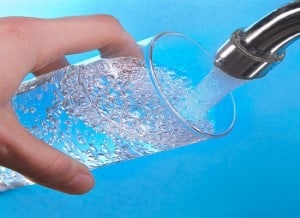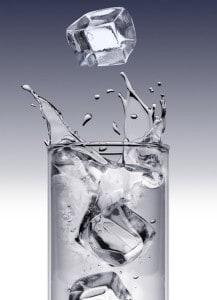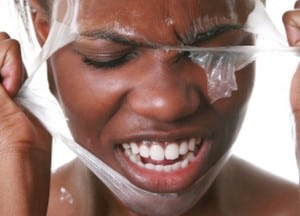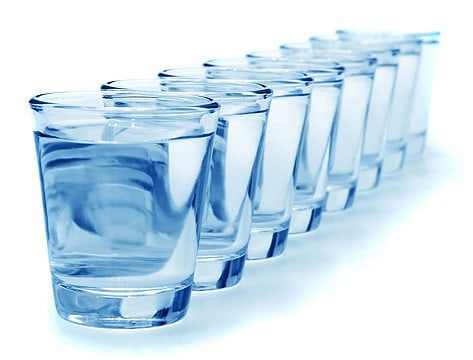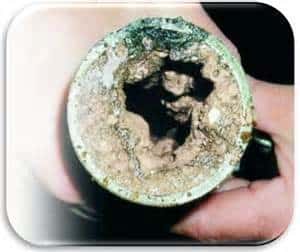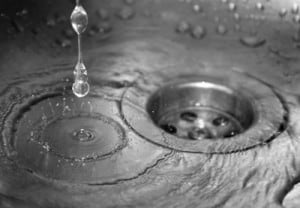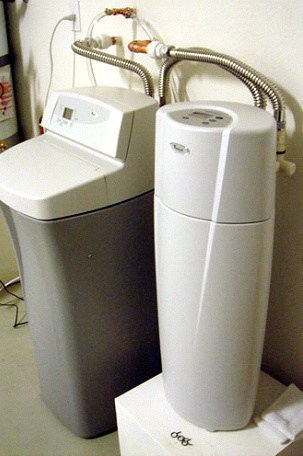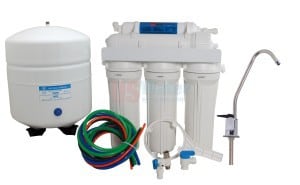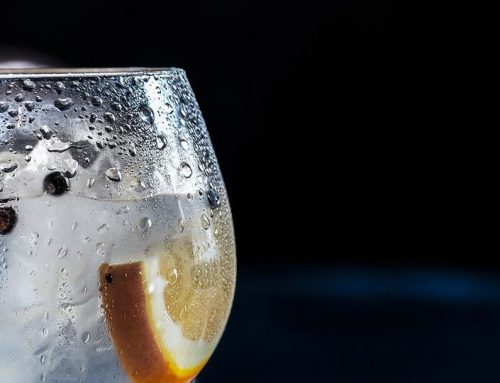Hard water is a fact of life. And the more we learn to accept this reality, the easier for us to find a solution for this problem. We already know what hard water is and the damage it can bring to our pipes and appliances. And it’s really annoying to imagine how scale buildup can effectively reduce the service life of our washers and water heaters knowing that we can do something about it to prevent this from happening. Not only that, some of us dislike the taste of hard water. Yes you may enhance the taste of the water by setting up a carbon filtration system, but this solution is not enough knowing that this same water can still damage your family’s hair and skin every time you go to shower. Hence, we always recommend that you purchase or rent a water softener system to eliminate all the effects of hard water in your area today.
Being a wise buyer or consumer that you are, you’re probably searching the internet at this very minute to look for entries about the pros and cons of having soft water. And as you dig in deeper, you may encounter some reports exposing both sides of the story. Some may have a basis in fact while some are just purely biased about the use of water softener devices. You might even read some water softener myths about what it can do and what it can’t do. So the set things straight, we decided to gather some of the common misconceptions about water softeners that have been ‘floating’ around through the years and tackle each of these claims if they should be believed or not.
Myth 1: Ion Exchange Systems Are The Only Devices That Can Produce Soft Water
Background: Some consumers are lead to believe that the ONLY way to obtain soft water is by installing an Ion Exchange Water softener at home.
Fact: This is so not true since we have already established in one of our previous guides that there are many ways to soften or condition hard water. We firmly believe that the basis of this myth lies in the fact that most of the devices installed in many homes in the country today are Ion Exchange types. That is why it’s easy for some of us to believe that these units are the only source for producing soft water.
Ion Exchange is actually one of the many processes used for softening water. And the term water softener does not pertain to this type of device alone. There are actually 2 types of water softener devices and these are the salt-based and the salt-free variety. Ion exchange devices belong to the salt-based group since it makes use of salt to soften hard water. However, health conscious individuals can also utilize alternative softening regenerants like potassium and hydrogen in the same device as there is a continuous debate with the use of sodium based salts for softening. Apart from this system, there’s also the salt-free type of softeners where these devices use different technologies in softening water. And although they don’t actually remove the calcium and magnesium minerals which makes the water hard, their different methods of treating water actually does something to chemical makeup of these minerals so they won’t cause scale buildup or water spot problems anymore. That’s why some experts also refer to these devices as “Water Conditioners” because they don’t actually remove hard contaminants in water.
Myth 2: Soft Water Tastes Better
Background: Some people buy water softeners because of its supposed ability to enhance the taste of water. They consider this as their primary motivation in purchasing water softeners rather than seeing the real benefits of these devices.
Fact: This claim is subjective. Their minds are conditioned to think that soft water taste good, and so they expect this to be the outcome. But come to think of it, if there’s some truth in this then why some people are still willing to pay money for bottled water just to enjoy its taste? While untreated water does have an unusual flavor at times, it does not mean that soft water produced by water softener devices tastes superior at all times. In fact, some individuals think that soft water tastes bland while others enjoy its refreshing flavor and it’s all because of the way these minerals react to the taste buds we have in our mouths. The truth is the “enhanced flavor in water” is just a result of the treatment process regardless of the filtering device being use. And this effect is not limited only to water softener devices.
Myth 3: Removing Minerals In Hard Water Is Actually Unhealthy For Our Bodies
Background: Some people believe that water softener devices actually deprive our bodies with all the mineral nutrients we need. Aside from that, they also think that a water softener system adds salt into the water, making it unsafe and unhealthy to drink.
Fact: This claim is one of the most prevailing arguments you can find about water softeners. It is so popular that the installation of salt-based water softeners are strictly regulated or totally banned in some U.S. states. While calcium and magnesium are abundant in tap water, it does not mean that these minerals are safe to be consumed because these dissolved solids are still in their inorganic form. In other words, our body cannot digest these minerals the same way it does with the minerals found in our food.
On the other hand, softening devices do not add any extra salt in the water. As stated in our article about water softener salts, the amount of salt being “added” is dependent on the amount of hard minerals found in water. And if you’re still bothered with the idea of having too much salt in water, then don’t be because studies have proven that this quantity is almost negligible compared to the amount of salt you can find in a can of diet soda. Hence, soft water is totally safe to drink (of course, you have to be careful if you’re at risk of heart/kidney disease or following a sodium free diet).
Myth 4: Soft Water Leaves A Film-Like Substance In Your Skin After Every Shower
Background: Some folks believe that soft water “wraps” our skin with a film-like substance after cleaning up and therefore giving us that slick and smooth feeling that is soft to the touch.
Fact: One of the noticeable qualities of soft water is the ‘slicky’ feel whenever the water is rubbed against our skin. And while a lot of people can attest to this fact, they really don’t understand the reason behind it and in the process create certain assumptions to give explanations to this result.
2 of the most prevailing fabrications would have to be the film phenomenon and the natural oil effect. According to the former, the soft feeling is due to the film of soft water that is wrapped on our skin. On the other hand, the latter states that our skin feels soft to the touch due to the result of our body’s natural oils interacting freely with the soft water from the water softener. Actually, the reason for this “slicker” feel is because of the absence of dissolved minerals in water. These minerals are in solid (only microscopic) form and are obviously rough when rubbed against the outer layer of our skin. Try to rub grains of sand against the tip of your fingers and you will definitely experience the same sensation… Since hard minerals are removed after the regeneration process, the qualities which make the water hard are being eliminated as well. Thus, giving you a kind of feeling like you are bathing under the rain (because rainwater has little or no traces of dissolved solids in it).
Myth 5: A Water Softener Can Also Purify My Water
Background: Some consumers buy water softeners because they think it can also remove bacteria, chemicals, and contaminants in raw water aside from multivalent minerals (calcium and magnesium).
Fact: Perhaps the misconception can be traced from the fact that water softener systems are also considered as water filtration devices. And from the word “filtration” itself, some individuals can be easily misled on the actual purpose of the device if its function is not carefully examined.
Do bear in mind that the name “water softener” refers to a group of water filtration devices whose main function is to decrease or totally eliminate the presence of calcium and magnesium deposits in water in order to produce soft water for a particular area. And while it can be considered as filtration device, it cannot do anything to the rest of the elements that is dissolved in the raw water. If you’re water has traces of chemicals and microorganisms, they will not be removed no matter how many salt pellets you place in your brine tank in excess or how many regeneration process you do for they don’t actually make the water hard.
That’s why it’s highly recommended to read every water softener product reviews carefully before buying so you will have an idea of how this device really works.
Myth 6: The Hardness In Water Is A Contaminant And Therefore It Should Be Removed
Background: Some homeowner thinks that the hardness is polluting the water being supplied in their homes and that is why it’s all the more necessary to install a water softener to get rid of this problem.
Fact: This is partially true. Well, it may be affecting the quality of water that is being supplied in our houses, but not necessarily contaminating the water as if it brings some negative effect to our health and the likes.
This water softener myth may sound funny, but it’s actually one of the usual lines that salesmen used in order to sell water softener products. Calcium and magnesium contaminates the water (therefore affecting its quality), but it’s not actually toxic to the body when consumed through drinking… The truth is, the hardness is water is a problem but more of like an expensive nuisance since the underlying effects of this kind of water can actually cost you a great deal of money due to appliance repairs and pipe replacements you have to deal with. It cannot harm our bodies after drinking. In fact, countless scientific studies have been done to determine the effects of hard water in the body and no negative effects have been revealed ever since.
Nevertheless, hard water should be taken care of in order to avoid unnecessary expenses and improve your way of living.
Myth 7: Waste Water Can Harm Our Septic System And The Environment
Fact: A certain study was conducted by University of Wisconsin scientists about the effects of waste water from water softener systems and it was found out that discharges from softener systems has no significant effects in our home’s septic system because they are designed to handle even the most toxic of substances. Regeneration waste doesn’t interfere with the soil relocation in the drain field. Instead, it enhances the process to make the soil more permeable. This even works well under fine-textured soil relocation areas. Moreover, the results indicate that is better to throw away water softener discharge to septic systems than to create separate ditches or dry wells just to accommodate this waste.
In the same way, discharges brought about by water filtering devices does not harm nature in a way since the minerals from the waste water were originally derived from the environment in the first place. In addition to this, certain devices used a certain type of regeneration process which can actually reduce the negative effects of greenhouse gas according to studies.
Myth 8: Hard Water Is Fading My Clothes
Background: Some consumers are lead to think that hard water actually fades the color of clothing and purchasing a water softener can solve this problem.
Fact: This is not true since hard water does not contain any bleaching chemicals prior to any kind of treatment. Don’t be fooled by such claim and consider this as your primary reason for buying a softener system because the culprit is not really in the water you have but more on the cleaning agents you are using during laundry. Do bear in mind that some detergents contain bleach. Aside from that, some of these products are “too strong” for some fabrics to bear that their colors deteriorate upon washing. Another factor which can cause clothes to fade is how you dry them up. If you are hanging your clothes outside under direct sunlight, chances are some of your stuff will fade due to the UV light that passes through each of the fabrics or otherwise known as “photodegradation”. Moreover, another suspect to this mystery is the kind of water being supplied in your house. If the water company in your area has already treated the tap water with chlorine, then it’s a probable reason why your clothes are beginning to fade. If you keep on experiencing this problem after purchasing a water softener, then might wanna consider changing your detergent or follow proper instructions on how to wash clothes from now on.
Myth 9: Operating A Water Softener Can Be Expensive
Background: Some individuals are still holding back on purchasing a softening device because they think water softener systems can add up on the monthly bills after purchase due to the expensive operating cost.
Fact: While you have to allot a portion of your budget to buy softener salts, there is actually no basis to this claim. In fact, having a water filtering system can even help you save money in many ways. Here are some of the perks you can get when you set up a water softener at home today:
- It reduces your monthly water bill since the pressure of the pipes is maintained due to the absence of scale formation.
- It can also lessen you monthly water-heating bills for up to 29 percent because of the same reason as mentioned above.
- It can help you save up on the amount of money you usually spend for buying soaps and detergents as soft water only requires about 50 to 75 percent of the detergent to be used during washing and cleaning. It may appear small at first, but try to add up the savings you earn after a couple of months and you will definitely feel the change!
- Helps you save money from the moisturizers and creams you formerly use to moisturize dry skin.
Again, you won’t be able to feel the effects of these benefits at first, but take our word for it when we say that you will definitely save a lot of money just because you choose to install a water softener at home. In the end, a softening device is a smart and practical investment because though you may have to spend more initially the returns will definitely be huge in the long run, similar to purchasing an LED light for your lighting needs.
Myth 10: Reverse Osmosis Systems Produce Acidic Water That Is Harmful To The Body
Background: Some consumers claim that the water being produced by their reverse osmosis devices have low pH level or acidic due to the bitter flavor it has.
Fact: There is actually a basis to this water softener myth since Reverse Osmosis units are designed to remove bicarbonate solids which are dissolved in water. In a sense, we can say that this is their way of treating water. And now that these minerals are being removed from the water, the carbonic acid in the liquid is no longer neutralized and making the water slightly bitter after the treatment process.
But come to think of it, this is not actually something to be worried about because even if the pH level in the water is reduced from 7 to 6 the treated water is still safe for human consumption. In fact, we are accustomed to drink juice, coffee, and soft drinks and yet these beverages have a pH level of 3, 4, and 2.5 respectively. The bottom line here is RO-treated water may be acidic, but the level of acidity is insignificant and cannot affect our health in a negative way.
Another point of concern in relation to this issue is whether or not RO-treated water can endanger your pipes at home. Rest assured that you don’t have to worry about this matter because the level of acidity is not enough to react to the metals in the pipes and release toxic substances in the water after corrosion. It would have to take a pH level of 2 or less before the corrosion can take place. And if you’re still skeptical about this information, you can always choose to purchase another softening system that will produce the kind of water you really want.
Please take a look into this table and get an overview of the different types of water softeners you can take advantage of today:
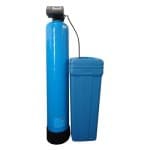
- Ion Exchange
- Type: Salt-Based
- Technology used: Ion Exchange
- Hard Elements Removed?: Y

- Magnetic
- Type: Salt-less
- Technology used: Magnetic Field
- Hard Elements Removed?: N

- Electronic
- Type: Salt-less
- Technology used: E. Pulse
- Hard Elements Removed?: N
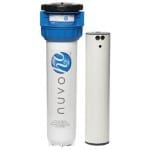
- Chelation
- Type: Salt-less
- Technology used: Chelation
- Hard Elements Removed?: N
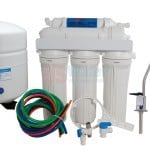
- Reverse Osmosis
- Type: Salt-less
- Technology used: Reverse-Osmosis
- Hard Elements Removed?: N

- Others
- Type: Salt-Based/Salt-Less
- Technology used: (Advanced)
- Hard Elements Removed?: ??? (Provides better solution according to manufacturer)
Conclusion
All in all, it’s better to look into each of these water softener myths and be properly educated than to rely everything on hearsay. We hope that you have learned something from this article and use it in finding the best water softener system to meet your softening needs.

